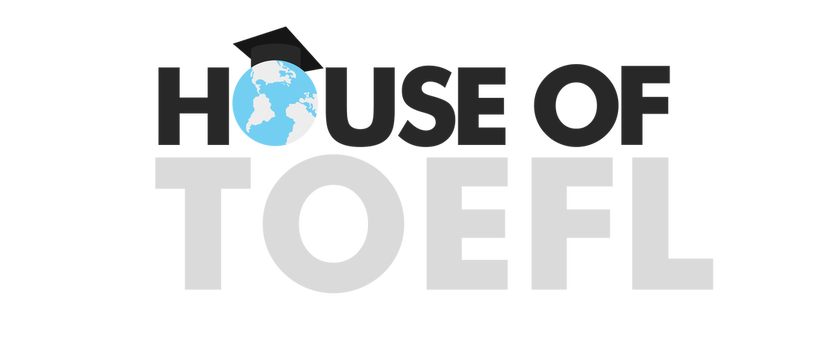How do I answer inference questions?The first step is to identify the question type. Inference questions look like the following:
Be careful of these TOEFL traps!The following types of answers are INCORRECT:
Sample passage
"In 1914, Henry Ford introduced the assembly line to produce automobiles. An assembly line is a manufacturing process in which parts are added as the semi-finished product moves from workstation to workstation, where parts are added in sequence until the project is complete. The assembly line had a revolutionary impact on society. It allowed for a fast and continuous flow of work that cut production time for an entire automobile from 12 hours to 93 minutes. This change allowed Ford to increase his profit margin and lower the cost of the vehicle to consumers. The cost of the Model T, Ford's innovative automobile, would eventually drop to $260, the equivalent of approximately $3,500 today. Suddenly, owning an automobile went from being a luxury of the rich to being affordable for the average family."
Sample inference question
It can be inferred from the passage that before 1914:
You will notice how important it is to read the question carefully—I hope you caught the word "before" in the question!
The first answer is too extreme. We don't know from this passage that nobody owned an automobile. The second answer could be true. But, we can't say for certain that Henry Ford had not thought of the assembly line. It's possible he thought of the idea before 1914. The last answer looks appealing. It repeats information from the passage. However, it's not correct because this happened in 1914, not before 1914.
Therefore, the third answer is correct. We can infer this because the passage says: "Suddenly, owning an automobile went from being a luxury of the rich to being affordable for the average family."
Okay everyone, I hope you see how you can get the correct answers on inference questions on the TOEFL iBT Reading section! Good luck on your TOEFL!
- What can be inferred about (x)?
- What does the author of the passage imply about (x)?
- Which of the following can be inferred about (x)?
- The author implies that (x)...
- It can be inferred that (x) affects (y) by...
Be careful of these TOEFL traps!The following types of answers are INCORRECT:
- The answer is beyond the scope of the information in the passage. This means that it goes too far. You can't really make this inference based only on the passage. You must be able to show a friend where you found your answer. For instance, in the example from earlier, you can infer the boy is deaf, but you can't infer all his teachers are deaf.
- The answer could be true. This is similar to the first point above. It means the answer gives you something that is possible, but you can't infer it from the information in the passage alone. For instance, we can't infer the boy in the example goes to a special school for deaf children.
- The answer only repeats words from the passage but doesn't answer the question. These answers look appealing because they contain technical words that you saw in the passage. But, if you read them carefully, they aren't correct!
- The answer contains extreme language. Some words such as always, forever, never, all, totally, completely, etc. are used as traps. Also, be careful of extreme phrases such as "this is the only (x)," or "this is the limit of (y)," and so on. These answers are sometimes correct butonly if the passage supports them.
Sample passage
"In 1914, Henry Ford introduced the assembly line to produce automobiles. An assembly line is a manufacturing process in which parts are added as the semi-finished product moves from workstation to workstation, where parts are added in sequence until the project is complete. The assembly line had a revolutionary impact on society. It allowed for a fast and continuous flow of work that cut production time for an entire automobile from 12 hours to 93 minutes. This change allowed Ford to increase his profit margin and lower the cost of the vehicle to consumers. The cost of the Model T, Ford's innovative automobile, would eventually drop to $260, the equivalent of approximately $3,500 today. Suddenly, owning an automobile went from being a luxury of the rich to being affordable for the average family."
Sample inference question
It can be inferred from the passage that before 1914:
- Nobody owned an automobile
- Henry Ford had not yet thought of the assembly line
- Automobiles were mostly owned by the wealthy
- The assembly line was introduced as a process with workstations to speed up production
You will notice how important it is to read the question carefully—I hope you caught the word "before" in the question!
The first answer is too extreme. We don't know from this passage that nobody owned an automobile. The second answer could be true. But, we can't say for certain that Henry Ford had not thought of the assembly line. It's possible he thought of the idea before 1914. The last answer looks appealing. It repeats information from the passage. However, it's not correct because this happened in 1914, not before 1914.
Therefore, the third answer is correct. We can infer this because the passage says: "Suddenly, owning an automobile went from being a luxury of the rich to being affordable for the average family."
Okay everyone, I hope you see how you can get the correct answers on inference questions on the TOEFL iBT Reading section! Good luck on your TOEFL!


